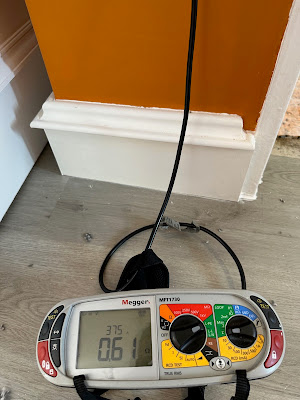 |
| EICR GLASGOW |
What Landlords in Glasgow Should Expect During an EICR Inspection
As a landlord in Glasgow, it's crucial to ensure the safety and compliance of your rental properties, especially regarding electrical installations. One key component of maintaining your property's electrical safety is the Electrical Installation Condition Report (EICR). This report is not just a formality but a legal requirement that assesses the safety of electrical systems. Here’s what you should expect when an EICR is conducted in your property:
1. Understanding EICR Glasgow
Firstly, it’s important to know what an EICR entails. An EICR in Glasgow is an inspection on the electrical installations in your property to ensure they are safe and meet the current electrical standards. This includes checking the condition of wiring, fuse boards, electrical fixtures, and safety devices to identify any wear and tear, deterioration, or defects.
2. Choosing a Qualified Electrician Glasgow
The inspection must be carried out by a qualified and registered electrician. In Glasgow, electricians should be registered with bodies such as NICEIC, ELECSA, or SELECT. Ensure that the electrician you choose has the proper credentials and experience to perform EICR inspections, as this is crucial for both the safety of the tenants and the validity of the report.
3. Preparing for the Inspection
Before the inspection, ensure that all areas with electrical systems are accessible. This includes making sure the electrician can reach the consumer unit (fuse board), sockets, light fixtures, and any other relevant components. Inform your tenants well in advance of the date and purpose of the inspection to ensure cooperation and access.
4. During the Inspection
The duration of the inspection will depend on the size of your property and the complexity of the electrical installations. Typically, it can take anywhere from a few hours to a full day. During the inspection, the electrician will test all electrical circuits and equipment, checking for overload, potential electric shock risks, and fire hazards. They may also need to temporarily disconnect the power to safely conduct some tests.
5. The EICR Certificate Glasgow
After the inspection, the electrician will produce an EICR certificate. This document will detail the condition of the property’s electrical installations. It will highlight any defects or deviations from the wiring regulations (BS 7671) and categorize them by their level of severity:
- Code C1: 'Danger present', risk of injury, immediate remedial action required.
- Code C2: Potentially dangerous with urgent remedial action required.
- Code C3: Improvement recommended.
- FI: Further investigation required without delay.
6. Addressing the Findings
If any issues are found during the inspection, it is your responsibility as the landlord to address them promptly. Failure to correct electrical deficiencies can result in legal consequences and put your tenants at risk. Plan for repairs or upgrades as needed, depending on the severity of the issues identified in the report.
7. Regular Inspections
EICRs are not one-time requirements. Regular inspections are mandated, with intervals depending on the type of property you are renting out. For instance, residential properties typically require an EICR every five years or at each change of tenancy.
Conclusion
Conducting an EICR Glasgow is an essential part of property management that ensures the safety of your tenants and helps you meet legal standards. As a landlord in Glasgow, being proactive about your property's electrical safety can prevent potential hazards and avoid legal repercussions. Always work with qualified professionals and address any issues found during the inspection immediately to maintain a safe and compliant rental property.
d Certificates Glasgow






